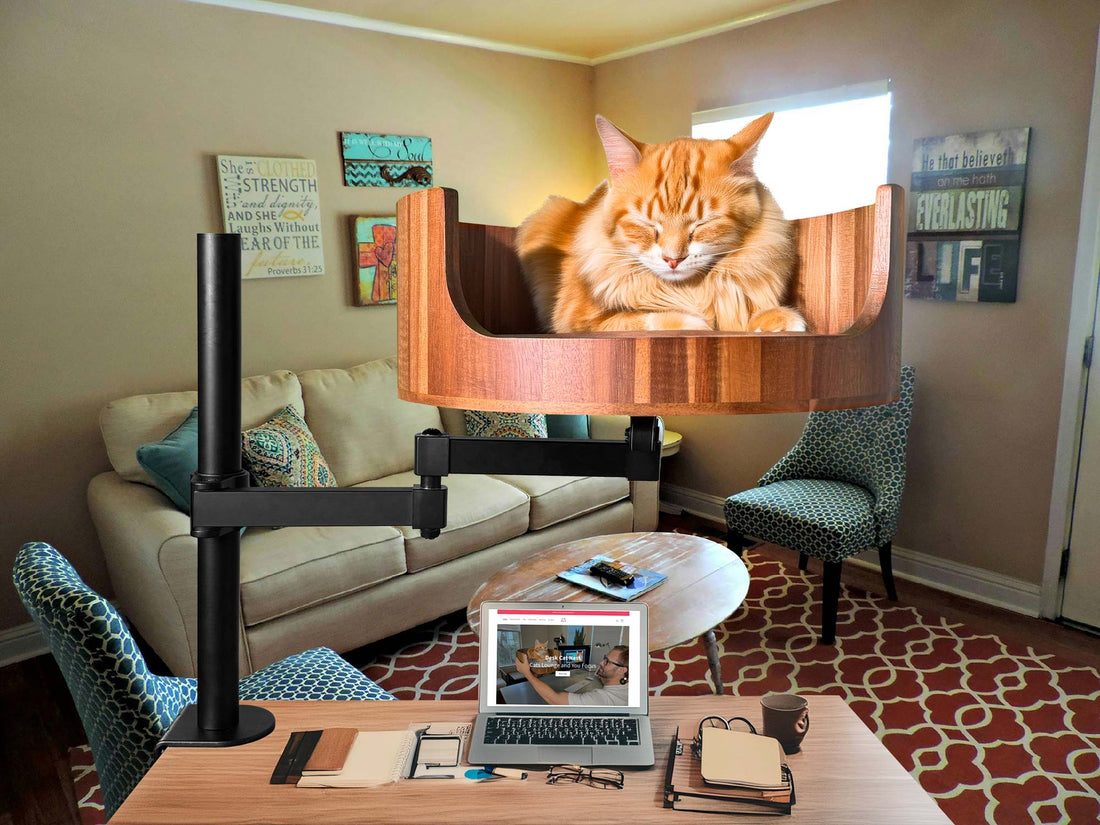
Why Would My Cat Pee on My Bed? Understanding the Behavior
Share
Do you often find your cat peeing on your bed? This behavior can be frustrating and confusing for many cat owners. Understanding why your cat is exhibiting this behavior is crucial to finding a solution. In this article, we will explore the possible reasons why your cat is peeing on your bed and provide tips on how to address this issue effectively.
One common reason for cats peeing on beds is stress or anxiety. Changes in the environment, such as moving to a new home or introducing a new pet, can trigger this behavior. Health issues, such as urinary tract infections or kidney problems, can also lead to inappropriate elimination. By understanding the underlying cause of your cat's behavior, you can take steps to address it and prevent future incidents. Additionally, we will discuss ways to discourage your cat from peeing on your bed and offer advice on how to create a comfortable and stress-free environment for your feline friend.
1. Cats may pee on the bed due to stress, anxiety, or medical issues, so it's important to rule out any underlying health concerns.
2. Changes in the home environment, such as new pets or furniture, can trigger this behavior in cats.
3. Providing your cat with a clean litter box, regular playtime, and a comfortable sleeping area can help prevent bed peeing.
4. Consult with a veterinarian or animal behaviorist for further guidance on addressing this issue.
5. Understanding your cat's unique preferences and behaviors can help maintain a harmonious relationship with your feline friend.
Medical Reasons
If your cat is suddenly urinating on your bed, the first step should be to rule out any potential medical issues. Cats may urinate outside of their litter box due to a urinary tract infection, bladder stones, diabetes, or kidney disease. Schedule a visit to the veterinarian to have your cat thoroughly examined and to rule out any underlying health problems.
Stress or Anxiety
Cats are sensitive animals that can easily become stressed or anxious. Changes in their environment such as moving homes, introducing a new pet or family member, or even rearranging furniture can trigger their anxiety and lead to inappropriate urination. Providing your cat with a safe and comfortable space, plenty of mental and physical stimulation, and keeping their routine consistent can help alleviate stress and prevent urinating on your bed.
Marking Territory
Cats are territorial animals by nature and may urinate on your bed as a way to mark their territory. This behavior is more common in unspayed or unneutered cats, but can also be seen in spayed or neutered cats. Marking territory through urination helps cats establish boundaries and communicate with other animals. Providing your cat with enough scratching posts, toys, and vertical spaces can help redirect this behavior.
Litter Box Issues
Inappropriate urination on your bed could be a sign that your cat is dissatisfied with their litter box. Cats are very particular about their bathroom habits and may avoid using a dirty or unpleasant litter box. Make sure to keep the litter box clean, provide enough boxes for multiple cats in the household, and use a litter that your cat prefers. Additionally, location and privacy are crucial factors in ensuring your cat feels comfortable using their litter box.
Behavioral Problems
Some cats may develop behavioral issues that can manifest in inappropriate urination. These problems could be due to boredom, lack of stimulation, or even a lack of social interaction. Creating a stimulating environment for your cat, providing regular playtime, and addressing any underlying behavioral problems can help prevent them from urinating on your bed. Consulting with a professional animal behaviorist may also be beneficial in addressing these issues.
Frequently Asked Questions
Why is my cat peeing on my bed?
There are several reasons why cats may urinate on your bed, including medical issues, stress, marking territory, or dissatisfaction with the litter box. It's important to consult with a veterinarian to rule out any underlying health problems.
Will the Desk Cat Nest help prevent my cat from peeing on my bed?
The Desk Cat Nest provides a cozy and comfortable space for your cat to rest and relax, which can help reduce stress and anxiety that may be causing your cat to urinate on your bed. However, it is still important to address any underlying issues that may be causing this behavior.
How can I encourage my cat to use the Desk Cat Nest instead of my bed?
Place the Desk Cat Nest in a quiet and secluded area where your cat feels safe and secure. You can also add some of your cat's favorite toys or blankets to make the nest more inviting. Positive reinforcement and rewards can also help encourage your cat to use the nest instead of your bed.
In conclusion, a Desk Cat Bed can greatly help in preventing your cat from peeing on your bed. By providing a designated spot for your cat to lounge and sleep, the Desk Cat Bed helps create a comfortable and secure space for your feline friend. This can reduce anxiety and stress, leading to less territorial marking behaviors. Additionally, the easy-to-clean materials of the Desk Cat Bed make it a convenient and hygienic choice for both you and your pet. Overall, investing in a Desk Cat Bed is a valuable choice to prevent your cat from peeing on your bed and promote a harmonious relationship between you and your furry companion.


















































